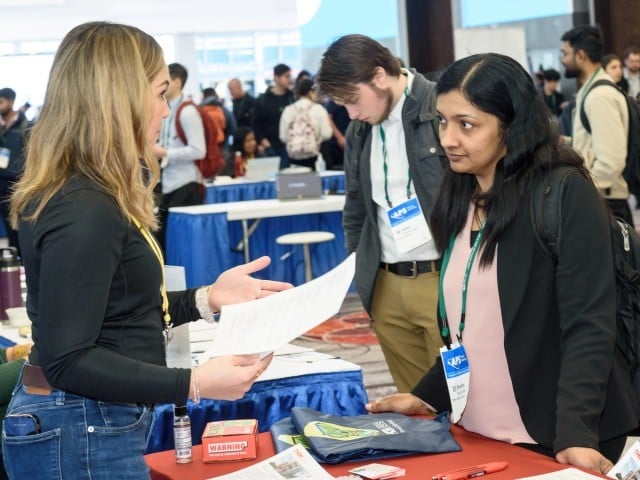APS Memberships for Physicists Around the World

Physicists worldwide have many options for joining APS and making use of APS member benefits.
Less-resourced countries
We offer free membership to physicists living in less-resourced countries through our matching membership program.
Apply for matching membership
Join APS and connect with physicists in the United States and around the world by:
- Providing a personal statement demonstrating eligibility for the matching membership program
- Completing the matching membership application
Apply for matching membership today
Benefits
Becoming a matching member of APS connects you to the U.S. and international physics communities. Matching members receive:
- Subscriptions to APS News and Physics Today
- Four years of APS membership
- Discounted rates for meetings and events
You may also be eligible for free access to the Physical Review journals.
Explore APS member benefits
Matching membership term
Matching memberships are limited to four years, so that we can accommodate as many physicists as possible. After the four-year period, if you are unable to pay APS membership dues, you are welcome to reapply to the matching membership program.
Reciprocal societies
We maintain agreements to share membership privileges with physics societies around the world. Reciprocal society members may:
- Submit papers to APS meetings with the same privileges as APS members
- Register for APS meetings at APS member rates
See the list of reciprocal societies
We also encourage reciprocal societies to inform their eligible members of our matching membership program.
Student memberships
APS membership is free for the first year for students joining APS the first time, with significant discounts on membership afterwards while enrolled as an undergrad or graduate student.
Explore student membership benefits
Contact and more information
Please direct questions about matching membership to the APS Membership department.
You may also wish to learn more about our international engagement initiatives.



